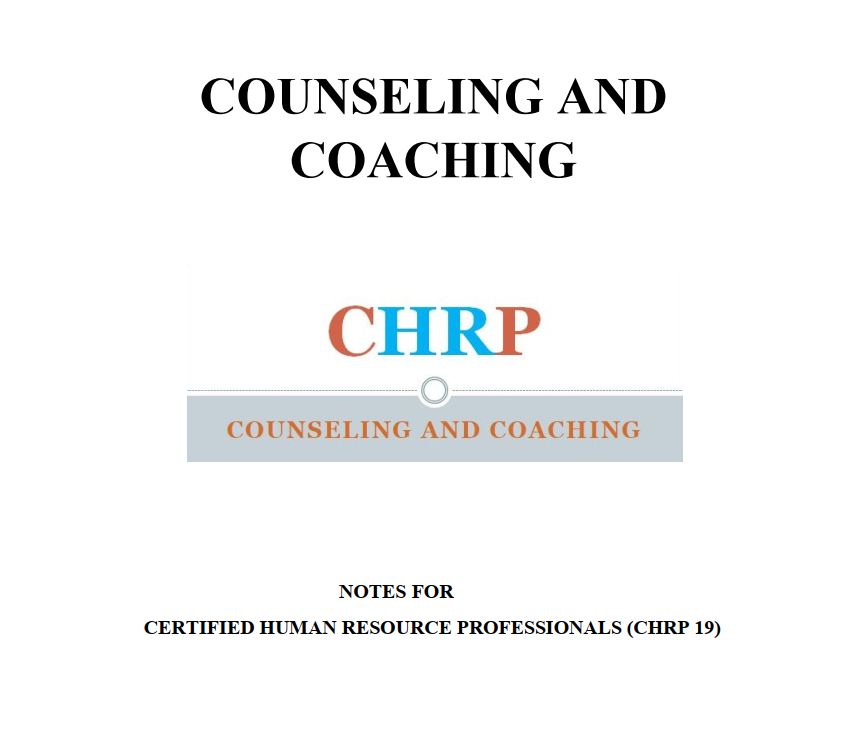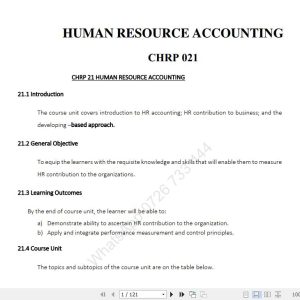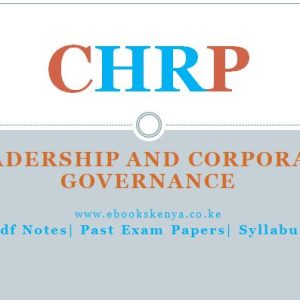Description
CONTENTS
1.0 INTRODUCTION OF COUNSELING
1.1 Meaning and Purpose of Counseling
1.2 Counselling and Other Helping Activities
1.3 Consultants and Counsellors
1.4 Qualities of Good Counselors
1.5 Relationship Between Client and Counselor
1.6 The Counseling Process
2.0 PERSONAL DEVELOPMENT
2.1 Personality
2.2 Self-Awareness
3.0 INTRODUCTION TO ETHICS IN COUNSELING PRACTICE
3.1 Ethical Guidelines and Principles
3.2 Counselor Responsibility and Competence
3.3 Confidentiality
4.0 SKILLS IN COUNSELING PRACTICES
4.1 Attending
4.2 Active Listening
4.3 Focusing
4.4 Empathy
4.5 Confrontation
4.6 Unconditional Positive Regard
5.0 APPLICATION OF COUNSELING AT WORKPLACE
5.1 HIV/AIDS Counseling at the Work Place
5.2 Alcoholism
5.3 Stress and Stress Management
5.4 Conflict Management
5.5 Loss/ Bereavement Counseling Skills
6.0 THEORIES OF COUNSELLING
6.1 Psychoanalytical – Freudian Approach, Eric Ericson
6.2 Humanistic – Person Centered, Gestalt
6.3 Behavioral: Conditioning
7.0 EMERGING ISSUES IN COUNSELING
7.1 Key Issues in Counseling
7.2 Trends in Counseling
8.0 INTRODUCTION TO COACHING
8.1 Meaning and Purpose of Coaching
8.2 Coaching Approaches
9.0 COACHING SKILLS
9.1 Questioning Skills
9.2 Listening
9.3 Giving Feedback
9.4 Working with Emotions
9.5 Building Rapport
10.0 KEY ISSUES IN COACHING
10.1 Trends in Coaching




Reviews
There are no reviews yet.